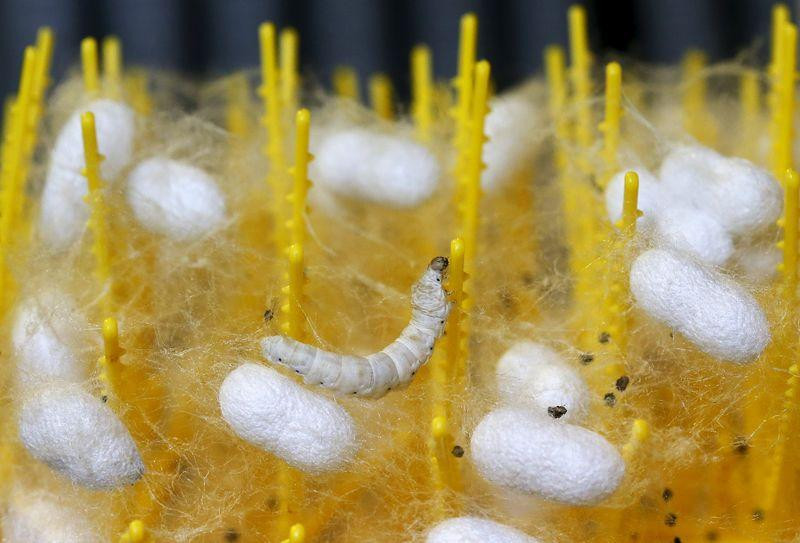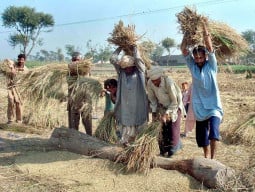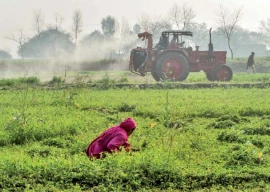
For women in the rural setting, production of raw material through agriculture and sericulture is one of the primary sources of income, however as the government withdraws funding from the non-timber sector, the livelihoods of thousands of female home-based workers have come to a standstill.
For instance, Bashiran Bibi and Sughra Bibi, both locals of Changa Manga, an artificial forest area in the Kasur district, had been rearing silkworms at their homes for the past two decades, allowing them to earn Rs40,000 to Rs50,000 per season. “This year however, due to a lack of funding from the government, we could not buy the required amount of silk seeds or mulberry leaves, due to which the few insects that had been reared have died,” they bewailed, further claiming that dozens of other women in Changa Manga were suffering a similar predicament.
According to sources obtained by The Express Tribune, almost 4000 women working in the sericulture sector across various rural areas like Changa Manga, Chichawatni, Mandi Bahauddin, Kamalia, Toba Tek Singh, Rajana, Faisalabad, and Sialkot have been robbed of their livelihoods following the withdrawing of funds for the non-timber sector.
Read Sarsabz Kahani unveils another uplifting true story rooted in agriculture
“Since the last two years, sericulture has not received any funds from the government.
As a result, the Japanese mulberry plants and trees that were planted across different places, including Changa Manga, have started withering away,” confirmed Nida Zahra, Deputy Director Sericulture at the Forest, Wildlife and Fisheries Department, who further informed that the sericulture department was no longer working on any new project and the decision regarding the restoration of the non-timber farming sector was pending in the Lahore High Court (LHC).
It is worthy of mentioning here that the Punjab government had prepared a three-year development plan, worth millions of rupees, in the financial year 2020-21 for the upgradation of the Sericulture Department attached to the Forest Department.
Despite, gradual progress being made in the sector, with regards to the training of farmers, after the initial allocation of Rs136 million by the Finance Department, a capricious rift between the Forest Department and the Department of Sericulture concerning the appointment of the Director of non-timber farming, brought the project to a standstill.
In his defense, the Secretary of Forest Department, Mudassar Waheed Malik said,” Hybrid mulberry is still being cultivated on 2,000 acres of land across five different places in Punjab for the production of silk.”
Also read Women farm workers made aware of rights
Speaking to The Express Tribune on the matter, Rana Saeed Anwar, President of The Silk Farming and Traders Association said, “Our aim with the project was to provide employment to 100,000 families in the first phase and 1 million families, especially rural women, through non-timber farming in the second phase.
Even though, 2,000 families were registered within a few months, now the project has been inactive for about one and a half years.
The project included the production of silk, honey, mushrooms, basil, moringa, aloe vera, fennel seeds, nigella seeds, carom seeds and other plants. At present, all these medicinal plants are being imported from the United Arab Emirates (UAE) and India.”
Published in The Express Tribune, November 15th, 2023.








1724486955-0/Untitled-design-(12)1724486955-0-270x192.webp)











COMMENTS
Comments are moderated and generally will be posted if they are on-topic and not abusive.
For more information, please see our Comments FAQ